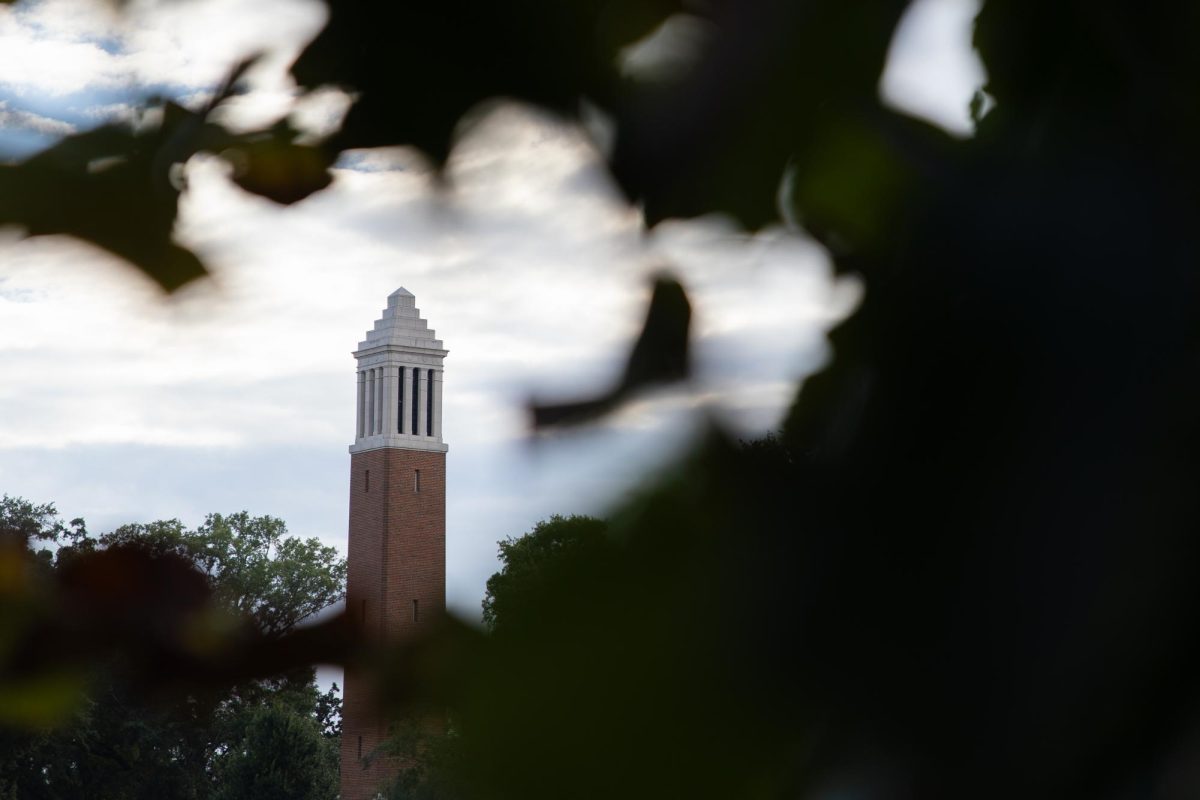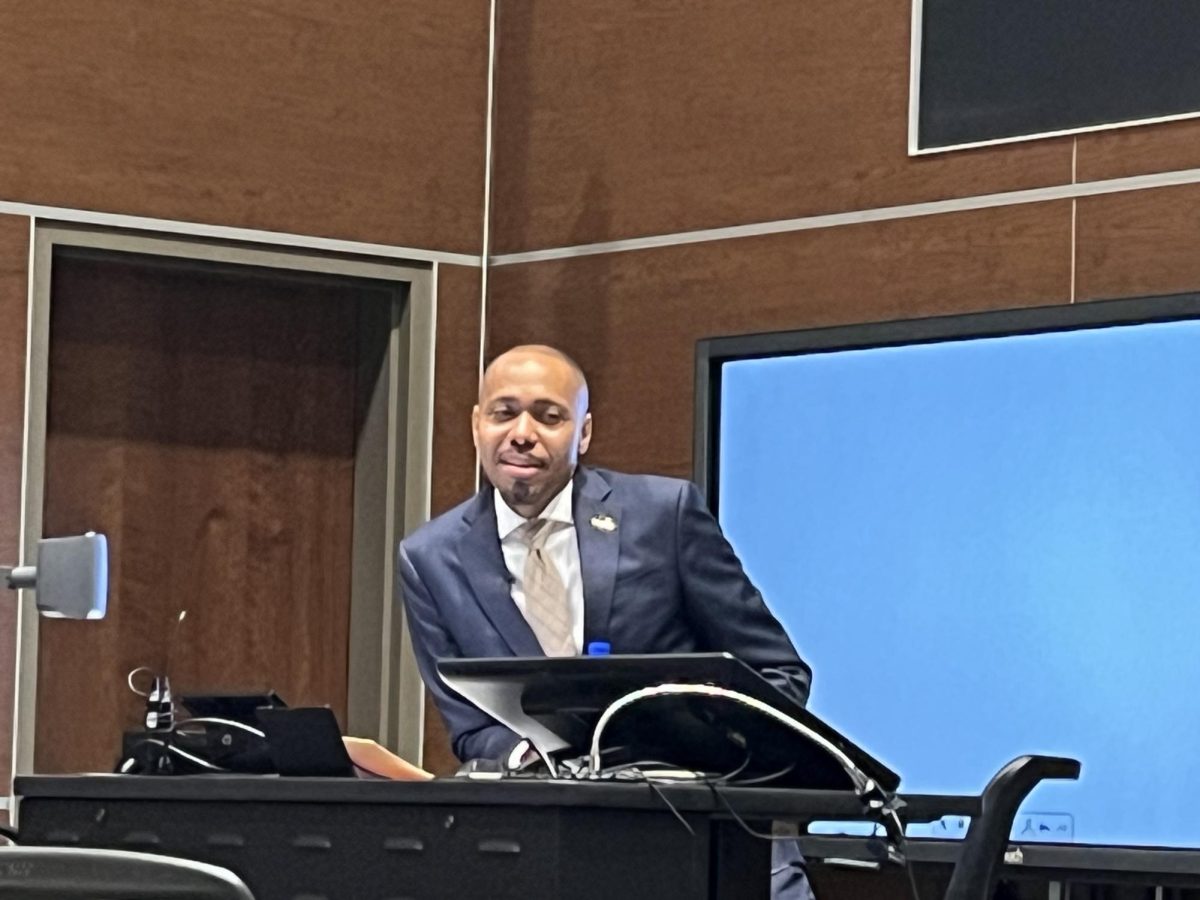When the weather goes bad, the jacket comes off. Whether he is covering deadly tornadoes or unanticipated snow storms, James Spann is at his best when Alabama weather conditions are at their worst. Always in his trademark suspenders, the most famous weatherman in the state has become an ubiquitous icon for both those who have lived their whole lives in the state and those who make it their home during their time at The University of Alabama.
For his many accomplishments, Spann was inducted into The University of Alabama’s College of Communications and Information Science Hall of Fame on Thursday Oct. 6. His career has lasted almost 40 years, and his familiarity with Alabamians has made him the go-to guy when the skies turn gray.
But despite the long career, Spann contributes the acquisition of his position at ABC 33/40 to mere luck.
“I have never applied for a job in my life. I have never filled out a job application. I have never had a resume like everyone else. I have been really blessed,” he said.
ABC 33/40 and Spann are celebrating their 20-year anniversary on the air together. Spann chose to join the channel in 1996 after they offered him the opportunity to continuously report on-air during dangerous weather situations. At the time, no other station in Alabama had such coverage.
Spann’s journey to becoming a weatherman started in the most unlikely of ways.
“I would occasionally get in trouble for staring out the window and not being a good listener in class,” Spann said. “My first grade teacher finally yanked me in the hall one day, and I remember that she was mean, calling us by our last names. I didn’t even know my friend’s first name until the second grade.”
But his teacher did something that he did not anticipate.
“I thought my life was ending. You never want to go out in the hall with her, but she actually smiled and gave me a book about weather,” he said. “That little book I read in first grade started me on a journey I am still on today.”
Abandoned by his father at the age of seven, Spann was forced to grow up quickly. Through his hard childhood, he developed a strong work ethic.
“I will always be thankful for learning to have a good work ethic. I’m not really good at anything I do, but I will work harder than anybody else,” Spann said.
He initially entered college as an electrical engineering major, but changed his major and graduated a meteorologist.
Looking back, Spann often wishes he had taken advantage of more writing classes.
“So much of what I do is the written word and I don’t feel as though I am very adequate,” Spann said.
One of Spann’s signature achievements is the creation of his weather blog, alabamawx.com. After an F4 tornado killed 11 people in Tuscaloosa in 2000, Spann began exploring different ways to be able to reach the public.
“[The blog] enables us to tell a better story in it immediacy and we can post whenever we want to,” Spann said. “We don’t have to wait for the TV news to come on. It’s very important to us, that’s probably the most important platform that we have.”
Spann said he would love to be able to go back and take advantage of the opportunities to learn to write more efficiently.
“I would give my left arm to take Rick Bragg’s class, goodness that guy is one of my heroes,” he said.
When Spann was beginning his career, meteorologist J.B Elliot took him under his wing and became an important mentor. Elliott worked for the national weather service in Birmingham for 32 years.
“We became very close friends, but the lessons I learned from just watching him work were just stunning, and he took the time to just spend with me and I will always be thankful,” Spann said.
Through all the disasters, Spann definitively said that his defining moment came on April 27, 2011 when 62 tornadoes ripped through Alabama claiming the lives of 252 people. He noted the importance of humility in the face of the unpredictable nature of natural disasters.
“Physical science did an excellent job that day, there were excellent warnings for all tornadoes,” Spann said. “But what we learned that day is that we are just not as good as we think we are, getting those warnings issued is one thing, but understanding human behavior well enough to convince them to get out of the way of the tornadoes is another.”
No amount of schooling, training or experience can adequately prepare a meteorologist to report on an event of such massive scope.
“There is no book, no manual on how to handle an event like that. I think all of my cumulative experiences, the good and the bad, led up to that day,” Spann said. “I think it was our finest moment, and I think it was our worst moment. I choose not to judge that day; history will judge that performance. I am hoping that the next generation can look at the day and learn from it, take away some of our best practices and learn from some of the things we didn’t do right. So that the next time it happens the death toll won’t be so high.”









